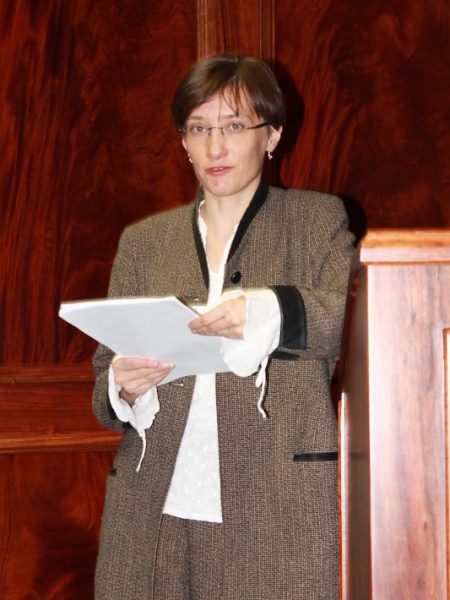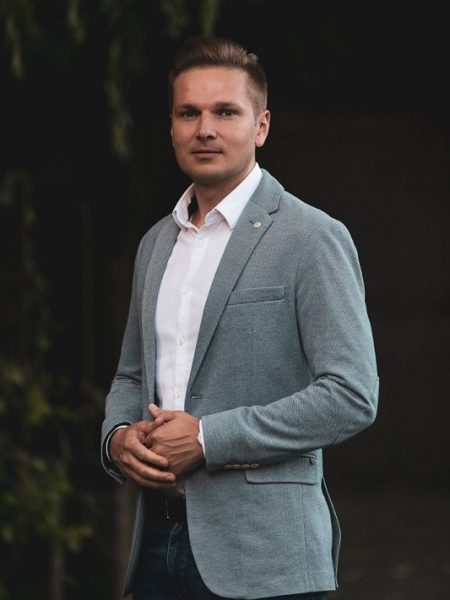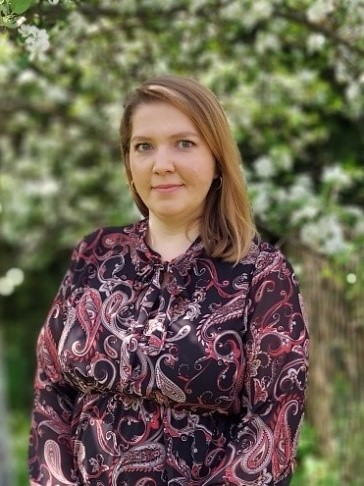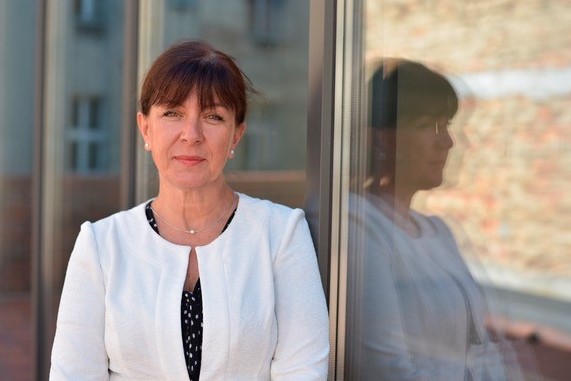|Weronika Cygan|
In June 2020, a group of researchers from the Institute of Pedagogy of the University of Silesia in Katowice, led by Prof. Ewa Jarosz, and Edyta Nieduziak, PhD, conducted a non-commercial, socially engaged study for Silesian communes on the quality of remote education during the SARS-CoV-2 pandemic. The initiative, initially limited to only two communes, evolved into a regional project. The research team grew to 15 researchers from the University of Silesia, representing such disciplines as pedagogy, psychology, and political science.
The researchers designed tools to conduct online surveys in eight communes: Bytom, Cieszyn, Dąbrowa Górnicza, Gliwice, Jastrzębie-Zdrój, Piekary Śląskie, Pszczyna, and Ruda Śląska. The research was carried out during the so-called second wave of the pandemic (the second shutdown of schools), i.e. from December to February during the 2020/2021 school year. A total of 8,670 teachers, children, and parents participated in the study. The aim of the research was to obtain a picture of remote education from the perspective of all its participants.
Marcin Gierczyk, PhD, a team member from the University of Silesia, stated that “Our research was conducted during the second wave of the pandemic, when teachers had already been prepared to some extent for remote teaching, therefore the questionnaires did not show problems concerning the technical side of the implementation of online education.”
The general picture of remote teaching in eight communes is presented in the report entitled “Edukacja zdalna w województwie śląskim w dobie pandemii SARS-CoV-2” (Remote education in the Silesian Voivodeship in the era of the SARS-CoV-2 pandemic), prepared for the “Pro Silesia” Business – University – Region Association by three members of the team: Dagmara Dobosz, PhD, Marcin Gierczyk, PhD, and Edyta Nieduziak, PhD, from the Institute of Pedagogy of the University of Silesia (Download the report).

Edyta Nieduziak, PhD | photo from the private archive of Edyta Nieduziak

Marcin Gierczyk, PhD | photo from the private archive of Marcin Gierczyk

Dagmara Dobosz, PhD | photo from the private archive of Dagmara Dobosz
Creative teachers
With schools closing and education shifting to distance learning, teachers were faced with the challenge of adapting their way of teaching to the new tools. The pandemic forced them to change their system of teaching and, as Edyta Nieduziak, PhD, points out, teachers managed to do it really well, which is evidenced by teachers’ self-organisation and mutual exchange of experiences and ideas.
“If someone is a good teacher, it doesn’t really matter which educational tool he or she uses,” says Edyta Nieduziak, PhD. Apart from a few exceptions, the commitment, resourcefulness and great flexibility in reorganising the work system, as well as creative approach in preparing the content of online lessons and the manner of their presentation were visible. The transition to virtual tools was not a major problem.

Prof. Ewa Jarosz, however, mentions a few problems, which the research uncovered and to which we should pay extra attention. The results showed that as many as 63% of educators had problems with the implementation of the teaching material in the remote form with accordance to the curriculum. With the onset of the pandemic, these difficulties became glaringly apparent, but it was certainly not the pandemic that caused them. In school education, the pressure to fulfil the requirements set out in the curriculum is enormous and often dominates the teachers’ attitude towards the aim of education. Meanwhile, it is better to focus on developing in students the competencies necessary to move and act efficiently in the modern world.
“Nowadays, information is at our fingertips. We are now concerned more with the need to develop skills of its critical analysis, verification, and proper organisation of acquired knowledge than about providing it through schools”, says Prof. Ewa Jarosz. Another problem identified in the team’s research is poor use of activation methods by teachers at schools, which prove to be very useful in developing important competencies during the education process.
Disrupted work-life balance
The mental hygiene of all parties, educators, students, and parents, suffered the most from “moving the school home”. They were all frustrated by the increased workload, fatigue and even, particularly in the case of students, a long-lasting deterioration of mood, impaired concentration, and problems with motivation to learn. This might be a result of reduced personal contacts of young people with their peers, often mentioned by the students themselves, as well as prolonged social isolation. This problem affects both educators and their pupils.
Edyta Nieduziak, PhD, points out that personal issues also play an important role: “Remote learning has greatly disrupted the division between the public and private spheres. The teacher, by switching on the camera, gives the students access to the private sphere. We also know that not all students were willing to turn the camera on.”
The researcher from the University of Silesia stresses that these are sensitive aspects which require reflection with regards to legal and ethical problems. Such issues were also shown in the use of social media in online education. 31% of the interviewed educators admitted to using Facebook for educational purposes. Edyta Nieduziak, PhD, cites statements in which they regretted the fact that their private account had become a tool too often used by pupils or parents to communicate with them after working hours.
Marcin Gierczyk, PhD, points out the huge responsibility that the parents had to take on in order to ensure that remote education was provided to their children without any problems. They had to provide equipment and access to appropriate conditions, comfortable for the child, but also actively participate in the education itself. In the survey, as many as 41% of parents complained about having to act as a teacher for their child, which was often beyond their capabilities.
Divided opinions among students
Opinions about remote education differed among students. On one hand they evaluated it worse than stationary education, but on the other hand they would like to see it used in the future. “Lower motivation to learn and poorer mood of some of them may have been caused by the monotony and by being locked inside the same four walls for a prolonged period of time”, explains Dagmara Dobosz, PhD.
There is, however, a large group of children for whom online learning is the preferred or the only possible solution to participate systematically in school life. Edyta Nieduziak, PhD, points here to those suffering from social anxiety as those who are much more comfortable with the new form of teaching.
At the same time, for students with disabilities, distance learning turned out to be a worse solution, so most special schools returned to the traditional way of working with their students, i.e. face-to-face teaching, after the holidays.
The study shows that pupils of all age groups were most affected by the lack of direct contact with their peers.
New challenges for the education system
The research in the communes showed a high level of commitment on the part of teachers who were developing their skills in online education. They made efforts to constantly propose better and more interesting ways of teaching.
“Online teaching platforms that teachers are already familiar with, such as Zoom or Microsoft Teams, are constantly being developed to meet the requirements of education and we should take advantage of that”, points out Marcin Gierczyk, PhD.
The research conducted by the scientists from the University of Silesia revealed areas that require special consideration. Among other things, they pointed to the necessity of supplementing provisions that would take into account the different nature of teachers’ and students’ on-line work. Many of them voiced problems with sitting in front of the computer for long periods of time. The issue of how to take proper care of working conditions at home definitely needs to be addressed.
Accessibility of education for all students
According to the collected data, children and teachers from the Silesian Voivodeship in the vast majority of cases did not voice problems with the lack of a computer access (difficulties were declared by 10% of pupils) or a fast internet connection (16% of the surveyed children experienced difficulties with internet connection). Although the tools used for remote learning seems to be widespread, the number of young people struggling with these inconveniences should not be underestimated.
“However, if we take into account that 10% of students had some hardware problems, then this represents quite a large group that was not able to participate in online education. This aspect should be taken into account in the future”, warns Dagmara Dobosz, PhD.
According to the researchers from the University of Silesia, the Silesian Voivodship is not an exception among other regions of the country and the conclusions from the questionnaires are in line with the research conducted in other parts of Poland.
Contribution to further research
Prof. Ewa Jarosz stresses the significance of the research itself also in the relations between the University and the communes where the surveys were conducted. One day before the commencement of the new school year 2021/2022, a public presentation of the report for the commune of Ruda Śląska[1] was held, during which a view of online education in this area was presented, as well as a number of practical tips on the directions for the development of teaching.
“This is an example of the University fulfilling the so-called third mission of a university, i.e. exerting a real, tangible influence on the environment by inducing and supporting constructive changes,” points out Prof. Ewa Jarosz.
[1] The report is available on the website of the Institute of Pedagogy of the University of Silesia. The contents of further reports on education in the communes included in the study will also be published there.





